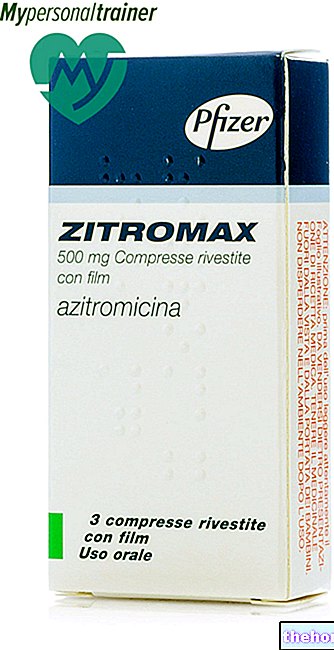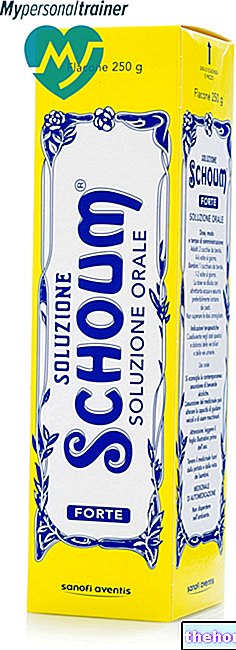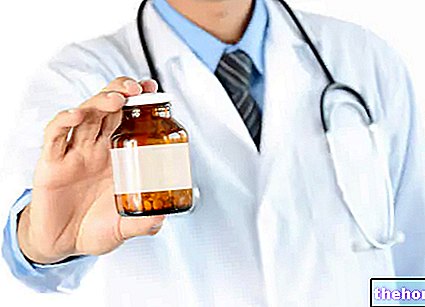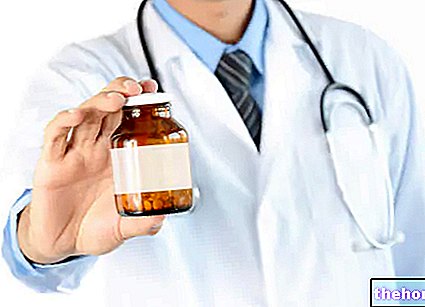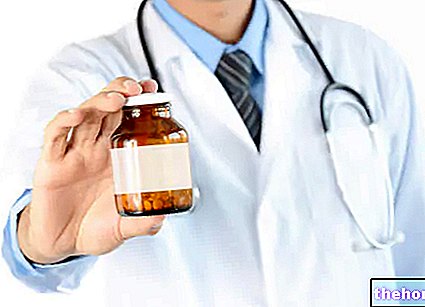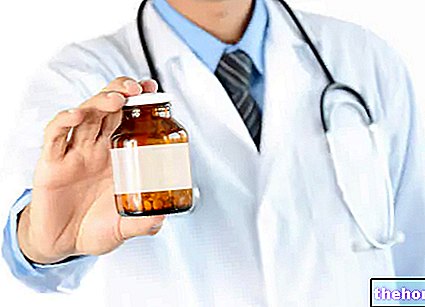Active ingredients: Ambroxol (Ambroxol hydrochloride)
MUCICLAR 15 mg / 5 ml syrup
MUCICLAR 75 mg prolonged-release capsules
MUCICLAR 30 mg granules for oral solution
Muciclar package inserts are available for pack sizes: - MUCICLAR 15 mg / 5 ml syrup, MUCICLAR 75 mg prolonged-release capsules, MUCICLAR 30 mg granules for oral solution
- MUCICLAR 15 mg / 2 ml solution to be nebulised
Why is Muciclar used? What is it for?
This medicine contains the active substance ambroxol hydrochloride, which belongs to a group of medicines called mucolytics, used to help clear mucus from the airways.
MUCICLAR is indicated for the treatment of secretion in acute and chronic diseases of the bronchi and lungs (in the presence of cough and phlegm).
Talk to your doctor if you don't feel better or if you feel worse.
Contraindications When Muciclar should not be used
Do not take MUCICLAR
- if you are allergic to ambroxol hydrochloride or any of the other ingredients of this medicine
- if you have severe liver or kidney problems.
MUCICLAR should not be taken in children under 2 years of age.
Precautions for use What you need to know before taking Muciclar
Talk to your doctor or pharmacist before taking MUCICLAR.
Take this medicine with caution and tell your doctor:
- if you have a stomach or bowel problem called a peptic ulcer;
- if you have kidney problems (kidney failure).
Rare cases of skin lesions (Stevens Johnson syndrome or toxic epidermal necrolysis) have been reported during treatment with this medicine.
Particularly in the initial stage of such illnesses, you may experience flu-like symptoms such as fever, pain, cold (rhinitis), cough and sore throat. If you experience skin or mucosal lesions, consult your doctor and stop treatment. with MUCICLAR.
Children
MUCICLAR 15 mg / 5 ml syrup, MUCICLAR 75 mg prolonged-release capsules and MUCICLAR 30 mg granules for oral solution should not be administered to children under 2 years of age, as they can induce bronchial obstruction and prevent normal breathing due to limited ability of children to clear secretions.
Interactions Which drugs or foods can modify the effect of Muciclar
Tell your doctor or pharmacist if you are taking, have recently taken or might take any other medicines.
Take this medicine with caution and tell your doctor if you are taking antibiotics such as amoxicillin, cefuroxime and erythromycin.
Warnings It is important to know that:
Pregnancy and breastfeeding
If you are pregnant or breast-feeding, think you may be pregnant or are planning to have a baby, ask your doctor or pharmacist for advice before taking this medicine.
Pregnancy
It is not recommended to use MUCICLAR during pregnancy, especially during the first three months. If you are pregnant, take MUCICLAR only when absolutely necessary and under the direct supervision of your doctor.
Feeding time
The use of MUCICLAR while breastfeeding is not recommended.
Driving and using machines
There are no data available to establish the effects on the ability to impair driving or using machines.
MUCICLAR 15 mg / 5 ml syrup contains sorbitol, glycerol, para-hydroxybenzoates and alcohol.
This medicine contains sorbitol. If you have been told by your doctor that you have an intolerance to some sugars, contact your doctor before taking this medicinal product.
This medicine contains glycerol which can cause headache, stomach upset and diarrhea.
This medicinal product contains para-hydroxybenzoates (methyl p-hydroxybenzoate, propyl p-hydroxybenzoate) which may cause allergic reactions (including delayed).
This medicine contains 3 vol% ethanol (alcohol), eg. up to 300 mg per serving, equivalent to 6 ml of beer, 2.5 ml of wine per serving. It can be harmful to alcoholics. To be taken into consideration in pregnant or lactating women, children and high-risk groups such as people with liver disease or epilepsy.
MUCICLAR 75 mg prolonged-release capsules and MUCICLAR 30 mg granules for oral solution contain sucrose.
These medicines contain sucrose. If you have been told by your doctor that you have an intolerance to some sugars, contact your doctor before taking these medicines.
Dose, Method and Time of Administration How to use Muciclar: Posology
Always take this medicine exactly as described in this leaflet or as directed by your doctor or pharmacist. If in doubt, consult your doctor or pharmacist.
Muciclar 15 mg / 5 ml syrup
The recommended dose for adults is 5-10 ml (5 ml of syrup corresponds to 15 mg of ambroxol), 3 times a day.
Use in children over 2 years of age
The recommended dose is 5ml, 2-3 times a day.
Muciclar 75 mg prolonged-release capsules
The recommended dose for adults is 2 capsules in a single dose to be taken after breakfast for the first 8 days and then 1 capsule until the end of the treatment.
Muciclar 30 mg granules for oral solution
The recommended dose for adults is 1 sachet 2-3 times a day.
If you forget to take MUCICLAR
Do not take a double dose to make up for a forgotten dose.
If you have any further questions on the use of this medicine, ask your doctor or pharmacist.
Overdose What to do if you have taken too much Muciclar
No cases of overdose have been reported. Symptoms of an overdose may correspond to undesirable effects that can occur at recommended doses. If you accidentally take an overdose of this medicine, notify your doctor immediately or go to the nearest hospital.
Side Effects What are the side effects of Muciclar
Like all medicines, this medicine can cause side effects, although not everybody gets them. The following side effects may occur:
Common (which may affect up to 1 in 10 people)
- changes in the sense of taste (dysgeusia);
- loss of sensation (hypoesthesia) of the mouth and pharynx;
- nausea.
Uncommon (may affect up to 1 in 100 people)
- vomiting, diarrhea, digestive difficulties (dyspepsia) and abdominal pain;
- dry mouth.
Rare (may affect up to 1 in 1000 people)
- headache (headache);
- increased mucus production, runny nose (runny nose);
- heartburn and burning of the esophagus (heartburn);
- constipation (constipation);
- skin irritation (rash, hives, contact dermatitis);
- difficulty in passing urine (dysuria);
- tiredness.
Not known (frequency of which cannot be estimated from the available data)
- allergic reactions (anaphylactic shock, angioedema, pruritus and other hypersensitivity reactions);
- occlusion of the bronchi (bronchial obstruction);
- dry throat.
Reporting of side effects
If you get any side effects, talk to your doctor or pharmacist. This includes any possible side effects not listed in this leaflet. You can also report side effects directly via the national reporting system at www.agenziafarmaco.it/it/responsabili. By reporting side effects you can help provide more information on the safety of this medicine.
Expiry and Retention
Keep this medicine out of the sight and reach of children.
Do not use this medicine after the expiry date which is stated on the package after "EXP". The expiry date refers to the last day of that month.
Store the syrup, capsules and granules for oral solution at a temperature not exceeding 25 ° C.
Do not throw any medicines via wastewater or household waste. Ask your pharmacist how to throw away medicines you no longer use. This will help protect the environment.
Other Information
What 15 mg / 5 ml syrup contains
- The active ingredient is ambroxol hydrochloride. 100 ml of syrup contains 300 mg of ambroxol hydrochloride.
- The other ingredients are: sorbitol solution, glycerin, methyl p-hydroxybenzoate, propyl phydroxybeanzoate, hydroxyethylcellulose, alcohol, saccharin, raspberry essence, purified water.
What MUCICLAR 75 mg prolonged-release capsules contains
- The active ingredient is ambroxol hydrochloride. 1 capsule contains 75 mg of ambroxol hydrochloride.
- The other ingredients are: sucrose, starch, natural and artificial resins, talc, polyvinylpyrrolidone.
What MUCICLAR 30 mg granules for oral solution contains
- The active ingredient is ambroxol hydrochloride. 1 sachet contains 30 mg of ambroxol hydrochloride.
- The other ingredients are: sucrose, orange flavor, pineapple flavor.
What MUCICLAR looks like and contents of the pack
- MUCICLAR 15 mg / 5 ml syrup: pack containing 1 bottle of 200 ml. A measuring cup is attached to the package with notches at volumes of 2.5 ml, 5 ml, 10 ml.
- MUCICLAR 75 mg prolonged-release capsules: pack containing 20 capsules.
- MUCICLAR 30 mg granules for oral solution: pack containing 30 sachets.
Source Package Leaflet: AIFA (Italian Medicines Agency). Content published in January 2016. The information present may not be up-to-date.
To have access to the most up-to-date version, it is advisable to access the AIFA (Italian Medicines Agency) website. Disclaimer and useful information.
01.0 NAME OF THE MEDICINAL PRODUCT
MUCICLAR
02.0 QUALITATIVE AND QUANTITATIVE COMPOSITION
MUCICLAR 15mg / 2ml solution to be sprayed
A single-dose container contains:
Active ingredient: ambroxol hydrochloride 15 mg.
MUCICLAR 15mg / 5ml syrup
100ml of syrup contain:
Active ingredient: ambroxol hydrochloride 300 mg.
MUCICLAR 75mg prolonged-release capsules
One capsule contains:
Active ingredient: ambroxol hydrochloride 75 mg.
MUCICLAR 30mg granules for oral solution
One sachet contains:
Active ingredient: ambroxol hydrochloride 30 mg.
For the full list of excipients, see section 6.1.
03.0 PHARMACEUTICAL FORM
Solution to be sprayed; syrup; granules for oral solution; prolonged-release capsules.
04.0 CLINICAL INFORMATION
04.1 Therapeutic indications
Disorders of secretion in acute and chronic bronchopulmonary affections.
04.2 Posology and method of administration
Inhalation use :
Muciclar 15 mg / 2 ml solution to be nebulised: adults: 2-3 single-dose containers per day, children: 1-2 single-dose containers per day.
For inhalation use, the contents of a single-dose container of Muciclar can be mixed in the dispensing device with distilled water in the ratio 1: 1, thus obtaining an optimal humidification of the air to be breathed.
Oral use:
Muciclar 15mg / 5ml syrup: adults: 5-10 ml of syrup 3 times a day, children over two years of age: 5 ml of syrup 2 or 3 times a day.
Muciclar 75mg prolonged release capsules: adults: 2 capsules in a single administration are recommended after breakfast in the morning for 8 days (attack therapy). Subsequently, the dosage can be reduced to a single capsule until the end of the treatment.
Muciclar 30mg granules for oral solution: adults: one sachet 2-3 times a day.
04.3 Contraindications
Hypersensitivity to ambroxol hydrochloride or to any of the excipients. Severe hepatic and / or renal disorders.
The use of the medicinal product is contraindicated in case of rare hereditary diseases which may be incompatible with one of the excipients (see section 4.4.).
The medicine is contraindicated in children under 2 years of age (for oral forms).
04.4 Special warnings and appropriate precautions for use
Ambroxol should be administered with caution to patients with peptic ulcer.
There have been reports of severe skin reactions such as erythema multiforme, Stevens-Johnson syndrome (SJS) / toxic epidermal necrolysis (TEN) and acute generalized exanthemic pustulosis (AGEP) associated with the administration of ambroxol. If symptoms or signs of progressive skin rash (sometimes associated with blistering or mucosal lesions) are present, treatment with ambroxol should be stopped immediately and a physician consulted.
Also in the early stage of Stevens-Johnson syndrome or toxic epidermal necrolysis (NET), patients may initially experience non-specific flu-like symptoms such as fever, chills, rhinitis, cough and sore throat. Due to these misleading symptoms it is possible that symptomatic treatment with cough and cold therapy may be undertaken.
If new lesions of the skin or mucous membranes occur, consult your doctor immediately and stop treatment with ambroxol as a precaution.
During the administration of the solution to be nebulized, since coughing from irritation may arise in too deep inhalation of the aerosols, it is necessary to try to inhale and exhale normally. In particularly sensitive patients, a preheating of the inhaled to body temperature may be recommended.
For patients suffering from bronchial asthma it is advisable to resort to a bronchial spasmolytic before inhalation.
In case of mild or moderate renal insufficiency, Muciclar can only be used after consulting your doctor. As with all medicinal products subject to hepatic metabolism and subsequent renal elimination, accumulation of the metabolites of ambroxol in the liver is expected in the presence of severe renal insufficiency.
Mucolytics can induce bronchial obstruction in children under 2 years of age. In fact, the drainage capacity of the bronchial mucus is limited in this age group, due to the physiological characteristics of the respiratory tract.
They should therefore not be used in children under 2 years of age (for oral forms) (see par. 4.3.).
The syrup contains:
- para-hydroxybenzoates: they can cause allergic reactions (even delayed).
- sorbitol: unsuitable for hereditary fructose intolerance. It can cause gastric disturbances and diarrhea.
- glycerol: dangerous in high doses. It can cause migraines, stomach upset and diarrhea.
The syrup it also contains 3 vol% ethanol (alcohol), eg. up to 300 mg per dose (maximum dose), equivalent to 6 ml of beer, 2.5 ml of wine per dose.
It can be harmful to alcoholics.
To be taken into consideration in pregnant or lactating women, children and high-risk groups such as people with liver disease or epilepsy.
The capsules and the granules for oral solution contain sucrose, therefore patients with rare hereditary problems of fructose intolerance, glucose-galactose malabsorption, or sucrase-isomaltase insufficiency should not take this medicine.
04.5 Interactions with other medicinal products and other forms of interaction
Following the administration of ambroxol the concentrations of antibiotics (amoxicillin, cefuroxime, erythromycin) in bronchopulmonary secretions and saliva are increased.
No interactions with other medicinal products have been reported.
04.6 Pregnancy and breastfeeding
Ambroxol crosses the placental barrier. Animal studies have not shown any direct or indirect harmful effects on pregnancy, embryo / fetal development, parturition or postnatal development.
Although preclinical studies and extensive clinical experience have not shown any harmful effects on the fetus after the 28th week of gestation, it is advisable to take the usual precautions on taking medicines during pregnancy. Especially during the first trimester it is not recommended to take of ambroxol.
The drug is excreted in breast milk, therefore the use of ambroxol is not recommended during breastfeeding. However, no adverse effects on the infant are conceivable.
During pregnancy and breastfeeding, the medicine should be administered only in case of real need and under the direct supervision of the doctor.
04.7 Effects on ability to drive and use machines
There is no evidence of an effect on the ability to drive and use machines. No studies on the effects on the ability to drive and use machines have been performed.
04.8 Undesirable effects
Undesirable effects listed by frequency are reported, using the following convention: Very common (≥1 / 10); common (≥1 / 100,
Disorders of the immune system
Not known: Anaphylactic reactions, including anaphylactic shock, angioedema, pruritus and other hypersensitivity reactions
Nervous system disorders
Common: Dysgeusia (e.g. changes in the sense of taste)
Rare: Headache
Respiratory, thoracic and mediastinal disorders
Common: Hypoesthesia of the oral cavity and pharynx
Rare: Rhinorrhea
Not known: Bronchial obstruction
Gastrointestinal disorders
Common: Nausea
Uncommon: Vomiting, diarrhea, dyspepsia and abdominal pain, dry mouth
Rare: Heartburn, constipation
Not known: Dry throat
Skin and subcutaneous tissue disorders
Rare: rash, urticaria, contact dermatitis
Not known: severe cutaneous adverse reactions (including erythema multiforme, Stevens-Johnson syndrome / toxic epidermal necrolysis and acute generalized exanthematous pustulosis)
Renal and urinary disorders
Rare: Dysuria
General disorders and administration site conditions
Rare: Fatigue
Reporting of suspected adverse reactions
The reporting of suspected adverse reactions that occur after authorization of the medicine is important, as it allows continuous monitoring of the benefit / risk balance of the medicine. Healthcare professionals are asked to report any suspected adverse reactions via www.agenziafarmaco.gov. it / it / responsible.
04.9 Overdose
No specific symptoms of overdose have been reported in humans so far. Symptoms observed in cases of accidental overdose and / or medication errors are consistent with the expected side effects of Muciclar at recommended doses and may need treatment. symptomatic.
05.0 PHARMACOLOGICAL PROPERTIES
05.1 Pharmacodynamic properties
Pharmacotherapeutic group: expectorants, excluding combinations with cough suppressants; mucolytic.
ATC code: R05CB06.
Ambroxol acts by regulating the transport of secretions throughout the respiratory tract. It has a marked mucolytic and mucoregulatory activity. The pharmacological effect is expressed on the quality of the mucus, on the ciliary function and on the production of alveolar surfactant.
Mucus quality: ambroxol stimulates the activity of the serous glandular cells, discharges the mucus granules already formed, normalizes the viscosity of the secretion and finally regulates the activity of the tubulo-acinar glands of the respiratory tree.
Ciliary functionality: ambroxol increases both the number of microvilli of the vibratile epithelium and the frequency of ciliary movements with a consequent increase in the speed of transport of the secretion produced and finally leads to the normalization of respiratory tones by improving expectoration.
Increased surfactant production: ambroxol stimulates type II pneumocytes to a greater production of alveolar surfactant thus ensuring the stability of the lung tissue, allowing correct bronchiolo-alveolar purification and finally facilitating respiratory mechanics and favoring gas exchange.
05.2 Pharmacokinetic properties
The bioavailability of ambroxol was evaluated in humans after oral administration of the medicinal product to healthy volunteers. It was concluded that ambroxol is rapidly absorbed through the enteric tract. The half-life is approximately 10 hours and maximum serum levels are reached around the 2nd hour. The drug is eliminated almost completely via the kidneys in the form of metabolites or unchanged. At the 24th hour the plasma level is still above 25 ng / ml.
05.3 Preclinical safety data
Ambroxol hydrochloride has a low index of acute toxicity. In repeated dose studies, oral doses of 150 mg / kg / day (4 weeks mouse), 50 mg / kg / day (52 and 78 week rats), 40 mg / day kg / day (rabbits 26 weeks) and 10 mg / kg / day (dogs 52 weeks) corresponded to no observable adverse effect dose levels (NOAELS) No target organ for toxicological effects was identified.
Intravenous toxicity studies with ambroxol hydrochloride in rats, using 4, 16 and 64 mg / kg / day, and in dogs using 45, 90 and 120 mg / kg / day (3 h / day infusions), did not show severe systemic and oral toxicity including histopathology. All adverse effects were reversible.
Ambroxol hydrochloride was shown to be non-embryotoxic and non-teratogenic in studies conducted in rats and rabbits when tested at oral doses up to 3000 mg / kg / day and 200 mg / kg / day, respectively. Fertility in both male and female rats was not affected by doses up to 500 mg / kg / day. The "no observed adverse effect level" (NOAEL) during peri- and postnatal development is equal to 50 mg / kg / day, while doses of 500 mg / kg / day have shown a slight toxicity on the pregnant woman and on the offspring, which manifests itself with a delay in the increase in body weight and with a reduction in the number of births.
Genotoxicity studies in vitro (Ames test and chromosomal aberration test) and in vivo (mouse micronucleus test) did not reveal any mutagenic potential of ambroxol hydrochloride.
Ambroxol hydrochloride was not shown to be potentially carcinogenic in carcinogenicity studies conducted in the mouse (50, 200 and 800 mg / kg / day) and in the rat (65, 250 and 1000 mg / kg / day) when treated with a diet for 105 and 116 weeks respectively.
06.0 PHARMACEUTICAL INFORMATION
06.1 Excipients
Solution to be sprayed: sodium chloride, water for injections.
Syrup: sorbitol solution, glycerin, methyl p-hydroxybenzoate, propyl p-hydroxybeanzoate, hydroxyethylcellulose, alcohol, saccharin, raspberry essence, purified water.
Capsules: sucrose, starch, natural and artificial resins, talc, polyvinylpyrrolidone.
Granulated: sucrose, orange flavor, pineapple flavor.
06.2 Incompatibility
There are no known incompatibilities with other medicines.
06.3 Period of validity
Solution to be sprayed: 3 years;
Syrup: 3 years;
Capsules and granules for oral solution: 5 years.
06.4 Special precautions for storage
Syrup, capsules, granules for oral solution
Store at a temperature not exceeding 25 ° C.
Solution to be sprayed
No particular precautions for storage.
After opening the aluminum pouch containing the single-dose containers of solution to be nebulised, the medicine must be used within three months; after this period, any unused medicine must be discarded.
When using half a dose of the single-dose container, the re-closed container must be stored at 2 - 8 ° C (in the refrigerator) for a maximum of 12 hours; after this period the residual medicinal product must be discarded.
06.5 Nature of the immediate packaging and contents of the package
Solution to be sprayed: single-dose containers in low density polyethylene of 2 ml: packs of 15 or 30 single-dose containers. The single-dose containers are divided into strips of 5 containers; each strip is placed in an aluminum bag,
Syrup: 200 ml polyethylene terephthalate bottle.
06.6 Instructions for use and handling
Solution to be sprayed: each single-dose container contains 2 ml corresponding to 15 mg of ambroxol; the container bears a notch at the volume of 1 ml (half dose). When using half a dose, the container can be closed with a pressure on the cap,
Syrup: 5 ml of syrup correspond to 15 mg of ambroxol; a measuring cup is attached to the package with notches at volumes of 2.5 ml, 5 ml, 10 ml.
07.0 MARKETING AUTHORIZATION HOLDER
PIAM FARMACEUTICI S.P.A. - Via Fieschi, 8 - 16121 Genoa
08.0 MARKETING AUTHORIZATION NUMBER
MUCICLAR 15 mg / 2 ml solution to be nebulized - 30 single-dose containers of 2ml - A.I.C. 025009097
MUCICLAR 15mg / 5ml syrup - 200ml bottle - A.I.C. 025009022
MUCICLAR 75mg prolonged-release capsules - 20 capsules - A.I.C. 025009059
MUCICLAR 30mg granules for oral solution - 30 sachets - A.I.C. 025009085
09.0 DATE OF FIRST AUTHORIZATION OR RENEWAL OF THE AUTHORIZATION
July 1983 / June 2010
10.0 DATE OF REVISION OF THE TEXT
March 2016

